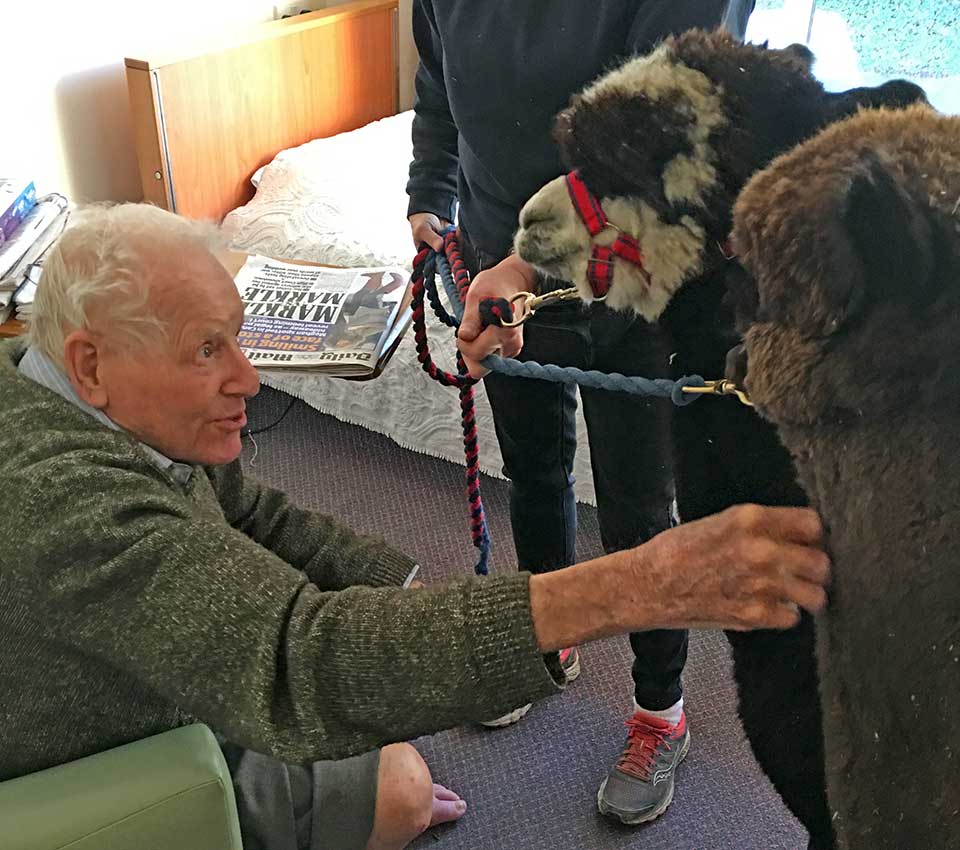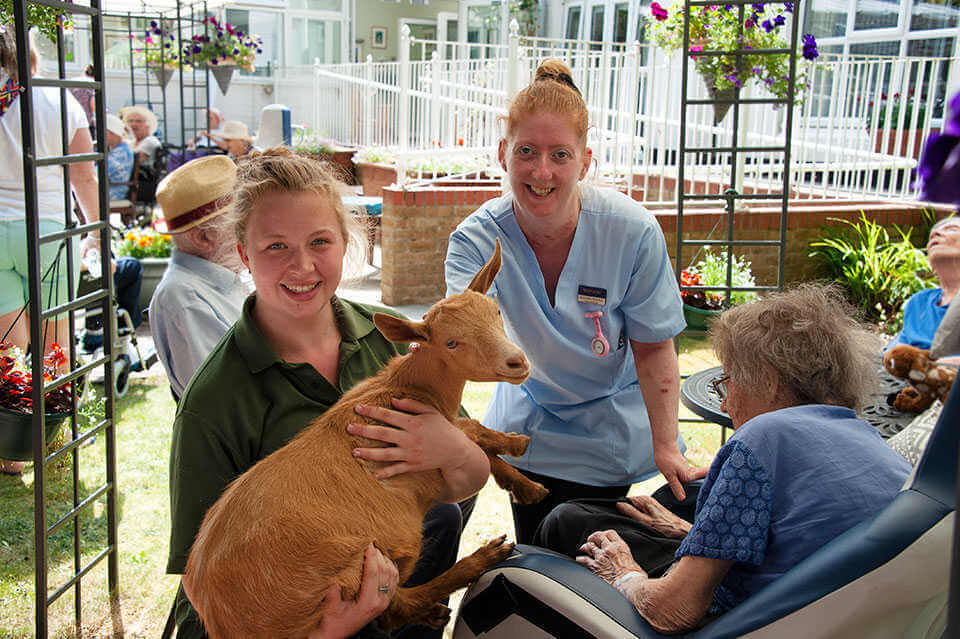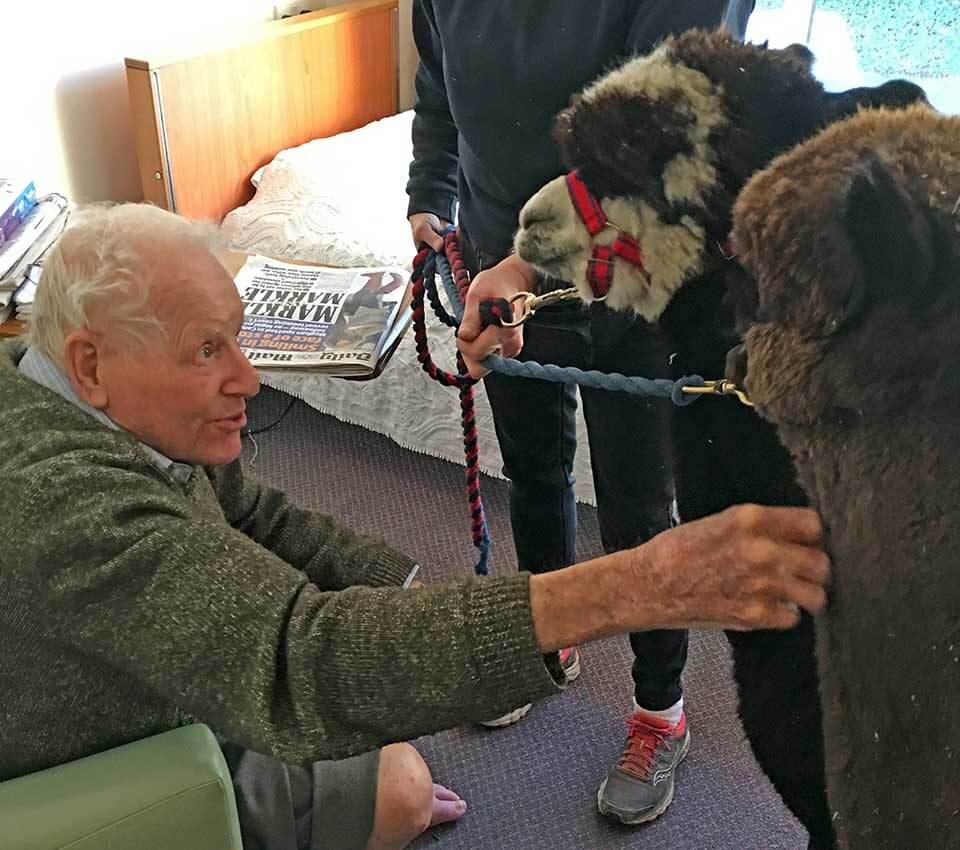Animal Therapy
There’s nothing quite like seeing the faces of our residents wreathed in smiles and hearing them laugh with delight. One of the activities that is guaranteed to generate this kind of response is an animal visit.
Here at Westacre Nursing Home, we have long been aware of the positive effect that animal therapy has on our residents. We have regular visits from the animals at Mill Cottage Farm in Alton and we recently had a visit from two alpacas called Guinness and Hickory which was a huge success. The residents absolutely loved them!

So, what are the benefits of ‘animal-assisted therapy (AAT)’ or ‘animal cuddles’ as we prefer to call it and does it really work?
There has been significant research on AAT and much anecdotal evidence but the science behind it is still on-going. There is certainly evidence to show that interaction with animals – cuddling them, grooming them, stroking them, taking them for a little walk – can help reduce blood pressure and alleviate the symptoms of anxiety and stress. This is backed by research measuring the levels of the six neurochemicals associated with a decrease in blood pressure. We can see from our own experience that it also lifts depression, calms agitation, and provokes much laughter and elation.
The Alzheimers Society says on their website:
“There are some suggestions that animals can communicate better than humans with people with dementia. This is thought to be because animals rely more on body language than verbal communication.”

There is no doubt in our minds that animals have a remarkable empathy and connection with our residents, eliciting joy and excitement that nothing else quite matches. This ranges from the pleasurable sensation of just touching and stroking an animal’s warm, soft fur – this was particularly apparent with our visiting alpacas – to the real loving communication, verbal and non-verbal, produced by a dog’s friendly lick and an exuberant wagging tail. We have seen a previously emotionally unresponsive resident become interested and more animated at the touch of a cold wet nose nudging their hand.
A visit from an animal can really be a life-enhancing experience for our residents. That is why we will continue to encourage our animal visits. The happy effects linger long after the visitors have left: photographs of the day continue to stimulate conversation and are a constant reminder for our residents of the fun they can expect when their furry friends next come to call!

